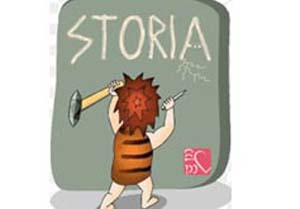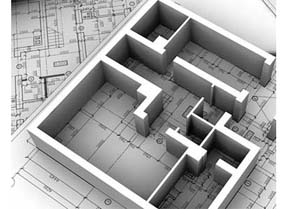 |
|
 |
|
| Visite: 1394 | Gradito: |
Leggi anche appunti:L'Italia prima dell'Unitą: il decennio di preparazioneL'Italia prima dell'Unitą: il decennio di preparazione Nel clima conservatore I moti liberali europei degli anni ventiI moti liberali europei degli anni venti La Restaurazione in Europa aveva L' impero bizantinoL' IMPERO BIZANTINO: La caduta dell'impero romano d' occ segna la fine dell' antichitą |
 |
 |
THE FIRST WORLD WAR AND THE POSTWAR PERIOD

The First World War broke out in Europe between Austria and Germany (the Central Powers) on one side, and England, France and Italy on the other.
The American President was Woodrow Wilson. He proclaimed American neutrality, although the United States was clearly in favour of Britain, France and Italy, for the sake of traditional cultural ties.
American merchant ships were sunk by German summary. But in 1917 the United States declared war on the Central Powers. Wilson prepared a document which was to be the basis of a honourable peace for Germany. It consisted of fourteen points. Wilson's main "points" were:
o Open covenants between States;
o Removal of all economic barriers between nations;
o Reduction of national armaments;
o An impartial adjustment of all colonial claims;
o League of Nations: formation of a general association for the purpose of affording mutual guarantees of political independence and territorial integrity to great and small states alike
The Peace Conference was held in Paris. The result was the Treaty of Versailles; it was extremely punitive for Germany, which was deprived of its colonies and had to pay heavy indemnities. Wilson was obliged to compromise on several of his "fourteen points" but his idea of a League of Nations was accepted. The League was founded to promote cooperation among nations, and to achieve peace and security. The League of Nations was rejected by the American Senate.
At first the conservative policy of isolationism seemed to give America a prosperity never enjoyed before. But suddenly there was a dramatic collapse on Wall Street. The causes of t he crash can easily be found:
o The government's high protectionist tariffs had reduced the foreign markets for American goods
o There had been an excessive expansion of credit and frantic speculation;
o A persistent agricultural depression had made the situation worse.
Usa appealed to a magnetic Democratic leader, Franklin Delano Roosevelt, who won the election of 1932, and proved a courageous leader and a good politician.
Now the situation was much worse, but Roosevelt faced it with a courageous programme, which he called the New Deal; it consisted partly in measures for recovery and direct relief for the unemployed, partly in courageous reforms:
o An extensive programme of public works was begun, with loans to stimulate business and fight unemployment;
o Long-range reforms were made in agriculture and industry;
o A far-reaching programme was approved for the conservation of natural resources;
o The banks were reopened under stricter State supervision, and guaranteed for people's deposits;
o Careful control was placed on the selling and buying of securities.
THE SECOND WORLD WAR

On August 14, 1940, Roosevelt and Churchill met in mid-Atlantic, and drew up the Atlantic Charter, based on the kind of principles that had been stated twenty years before in Wilson's "Fourteen Points".
Hitler controlled all western Europe, except neutral Spain, Sweden, Switzerland and Ireland. Wartime leadership was entrusted to General Eisenhower in the West; and to General MacArthur in the Far East. Italy collapsed in September 1943, but the war was continued on the Italian soil by the Germans and by the few followers of Mussolini, who had founded a Fascist Republic in Northern Italy. On August 1944 Paris was liberated and the Russians regained Poland, Rumania, Yugoslavia and Hungary.
HITLER COMMITTED SUICIDE. Only Japan resisted and ignored the ultimatum that the Allies had sent: surrender.
On August 6 an atomic bomb was dropped on the industrial town of HIROSHIMA and another three days later, on NAGASAKI. On September 2 1945 Japan surrender.
A short time before the end of the war Roosevelt had died, just a few months before his death , Roosevelt had met Stalin (Russian Marshal) and Churchill (British prime minister. They agreed upon the policy to follow after the end of the war; they dealt with the division of Germany into two zones and the establishment of the United Nations Organization (UNO)
 |
| Appunti su: |
|
| Appunti Astronomia cosmologia |  |
| Tesine Architettura |  |
| Lezioni Aeronautica |  |